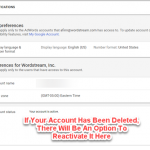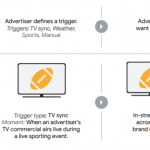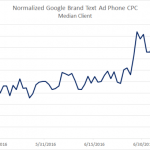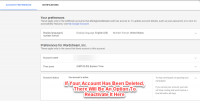Google’s Enhanced Ad Targeting Reignites Privacy Concerns
by Laurie Sullivan@lauriesullivan, October 24, 2016, 3:44 PM

Google may not yet use Gmail keywords or voice search commands on Home to target Web ads, but it will certainly continue to enhance its audience and cross-channel targeting capabilities to better compete with Facebook.
The latest controversy about its ad-targeting capabilities comes with a post from ProPublica that raises concerns about a policy change this past summer that lifts Google’s ban on connecting DoubleClick cookies with personally identifiable information.
“The era of social networking has ushered in a new wave of identifiable tracking, in which services such as Facebook and Twitter have been able to track logged-in users when they shared an item from another website,” according to ProPublica.
The ProPublica post points to a crossed-out line in Google’s privacy policy that promises to keep separate DoubleClick cookie information and personal identifiable information by default unless the user gives opt-in consent.
Some argue that the change adds a name to the long-standing argument that Web tracking was, for the most part, anonymous.
Back in June — when Google sent out notices about new Google Account features that provide more control over the data Google collects and how it gets used — few, if any, recognized the change.
Google substituted a new description in June, which states that depending on the person’s account settings, activity on other sites and apps may be combined with personal information to improve Google services and advertisements.
Google is not the only one updating its policies. Apple recently began letting users go incognito from advertisers by avoiding a unique ID number called Identifier for Advertising (IDFA). The Business Insider points to a study from Adjust that suggests Apple users in the U.S. are opting out of targeted ads since the release of the latest update to iOS in mid-September.
In the U.S, rates rose to 20%. In fact the report estimates that the “U.S. is one of the few places where the Limit Ad Tracking rates have consistently risen throughout the month.” “Around the launch of iOS 10, different measurements implied that circa 16%-18% of iOS users in the United States had opted out of ad tracking. As of October 4th, the day this dataset was retrieved, that number had steadily risen to 20%,” per the report.
MediaPost.com: Search Marketing Daily
(25)













